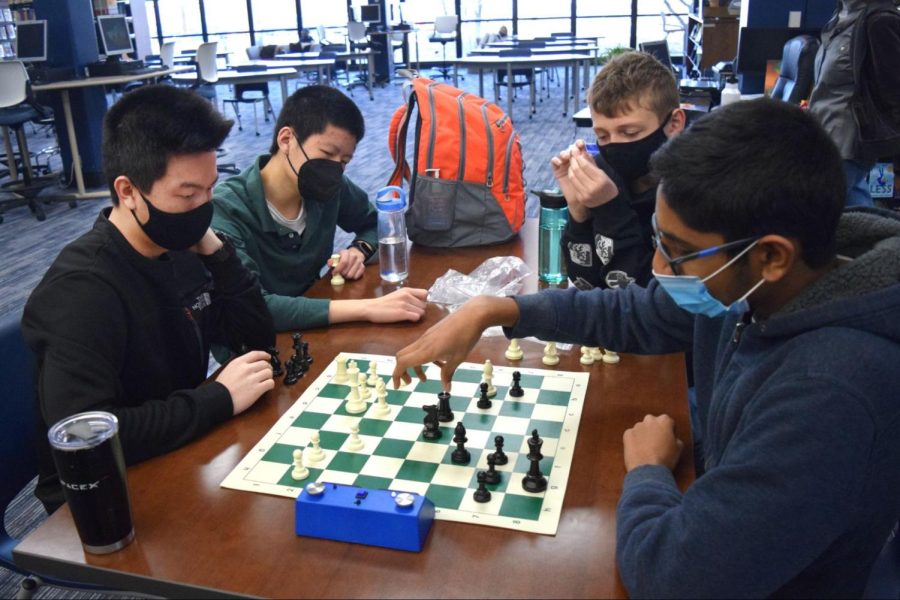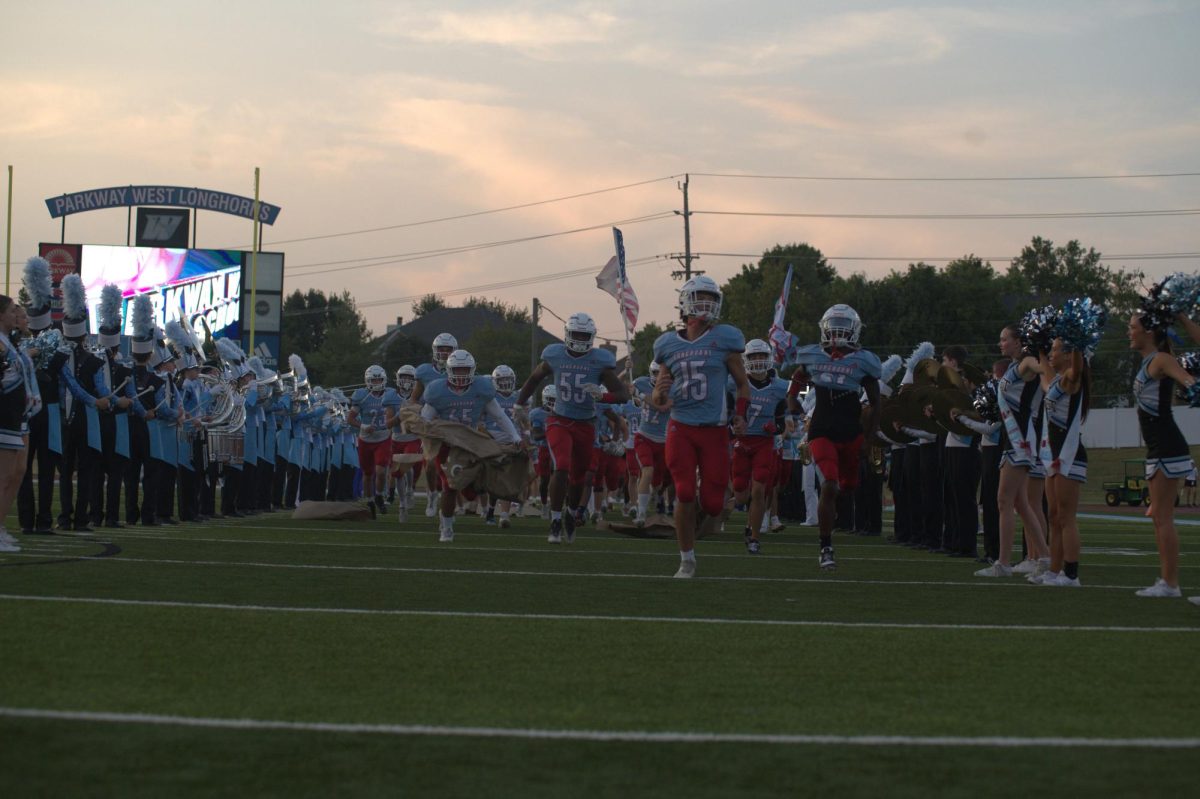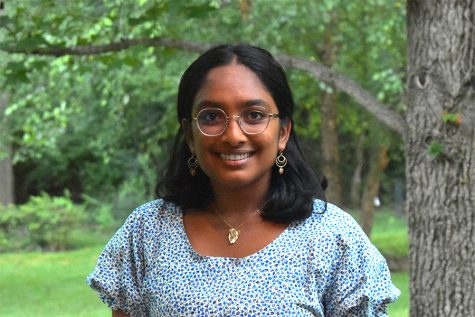After countless double scheduled club meetings and a lack of student attendance accountability during the first semester, Ac Lab schedule will now take place through Infinite Campus. Club meetings will be restricted to once per month.
Students used to fill out a Google Form with their Ac Lab selection, but teachers found this system difficult to manage.
ŌĆ£The Ac Lab card lacked a student accountability piece. When students did not report to the proper modular selections, teachers had to take attendance by paper and then email their Ac Lab home teacher in addition to the grade level principal to follow-up on the whereabouts of students. This was a tedious process,ŌĆØ junior principal and Ac Lab coordinator Brionne Smith said. ŌĆ£Additionally, we had to review a different platform, Tableau, in order to seek student selections. None of the programs we were using ŌĆ£spokeŌĆØ to one another.ŌĆØ
Students now will select their classes through Infinite Campus using the Responsive Scheduling tool. Sophomore principal Mario Pupillo oversaw the Responsive Scheduling aspect of Ac Lab.
ŌĆ£Every other class that you go to, you’re scheduled into that class. There’s a kind of expectation that that is where you are. It helps if we need to find you, if a parent calls or there’s an emergency we know exactly where you are at any given moment in the day. You can look at your own schedule and see it right there in one spot. [Responsive scheduling] is just the logistical piece of making that happen for Ac Lab as well,ŌĆØ Pupillo said.
The influx of students across the district attempting to log into Infinite Campus recently caused the site to become unresponsive. While this lag did not affect the attendance process, administrators ask students to make their selections the night before or earlier during the day to avoid overloading the system again.
ŌĆ£Like everything else, this is a conversation that will be furthered because this is the first time we’re doing Ac Lab at all. If we make changes, we need to then look at those over some time period and say, ŌĆśHey, is this working? Is this meeting the needs of students?ŌĆÖŌĆØ Pupillo said. ŌĆ£If something’s not been looked at to adjust it, like everything else, there’ll still be open conversation, and adjustments [will] still [be] made.ŌĆØ
Smith consulted committees of teachers before making another change in Ac Lab policies: limiting club meetings to once per month.
ŌĆ£A lot of students rely on that time so that they’re able to go and get the help that they need. [Among both] teachers and students, it was a common opinion that meetings with clubs were too often,ŌĆØ Smith said. ŌĆ£So, we worked to make it a stipulation that clubs would only meet once a month. We’re trying to figure out the balance because the same positives can be received as negatives in some instances.ŌĆØ
Smith hopes this might help foster student-teacher relationships and create a sense of community.
ŌĆ£What I love about [Ac Lab] is that students are able to have a teacher that they see more regularly. That is kind of lost when you transition to a high school. I’m an old middle school teacher, and even though I didn’t see [my homeroom] for long periods, I was able to form strong relationships with them and hold them accountable and [have] a true relationship,ŌĆØ junior principal and Ac Lab coordinator Brionne Smith said. ŌĆ£Our hope is that you would stay in the Ac Lab home for the whole four years, just so that you have that place that you feel like you belong, and you have that relationship with other classmates and with your Ac Lab teacher.ŌĆØ
While limiting club meetings can foster an Ac Lab community, some students believe it can negatively impact club communities. Due to the bus driver shortage, there is no activity transportation after school, so clubs that used to meet after school met during Ac Lab. However, clubs such as Chess Club do not have time to meet more than once a month.
ŌĆ£For the competitive side of Chess Club, we use Ac Lab to train ourselves and play fierce games. At group meetings, we review games to prepare for matches against other teams. We go through what we were thinking or what we could have done better as we play each game,ŌĆØ Chess Club President and junior Wilson Gao said. ŌĆ£All of these things take time, which we wonŌĆÖt have before school or at meetings once a month. After school, not many people show up because now transportation is an issue.ŌĆØ
Chess Club has a competitive side that requires more than the time available before school and once a month during Ac Lab for practice.
ŌĆ£This [will] hamper our ability to function as a competitive team because we’re in the middle of chess season [right now]. Limiting our meetings will make it harder to coordinate, practice and prepare for our matches. Even besides the competitive standpoint, I enjoy chess club. It’s a nice way to relax,ŌĆØ Gao said.
Administrators anticipate Ac Lab to continue to evolve over the next few years as the school learns from experience.┬Ā
ŌĆ£We can’t please everyone. In an ideal world, that would happen, but we canŌĆÖt. We just think about the whole picture. We always want to keep students at the center. I don’t believe we’ll ever get to a place where everyone is 100% happy, but we’re always trying to alter and share things for improvement. I don’t want students to ever think that this is exactly what Ac Lab is. Things can always improve and get better,ŌĆØ Smith said.
In the meantime, both Smith and Pupillo encourage students to reach out to them with questions or concerns.
ŌĆ£I’m a very approachable person, at least I try to make myself seem approachable, and I don’t take things personally. You can just send me an email, and I’m happy to respond and listen to you. I will document what you have to say and bring it to the Ac Lab Committee,ŌĆØ Smith said. ŌĆ£It’s still new. ItŌĆÖs still a work in progress. This is not an end all be all, [and] we’re always trying to improve. [So], tell us what works [and] what doesn’t work because it’s something I’m constantly trying to revamp and revise in the best interest of students. My biggest hope is for everyone to feel like it’s a place that they belong, that they find a purpose in Academic Lab.ŌĆØ



![Gazing up from the stage, junior Joseph McCurdy who played Peter Pan in the school play, Lost Girl, sits next to senior Juliana Rogers, who plays Wendy Darling, during a theater rehearsal. McCurdyŌĆÖs passion for theater began when he observed a West High production in middle school. ŌĆ£I've been in the high school theater program since I was a freshman. I've always loved theater, but [what prompted me to join] was [when] I went to see [a performance here] when I was in middle school, and it was super cool,ŌĆØ McCurdy said.](https://pwestpathfinder.com/wp-content/uploads/2025/11/IMG_6535-1200x798.jpeg)

![Standing tall, stacked in a precise formation, the cheer team strikes a signature pose during halftime on Sept. 12 at the varsity football game. Nearly a month after this performance, the cheer team performed at the Missouri Cheerleading Coaches Association (MCCA) regional competition on Oct. 4, 2025. ŌĆ£We've all come [to] work together a lot more,ŌĆØ sophomore Elyssa Philippi said. ŌĆ£We're a lot closer than we were [earlier in the season] and going to state has made us closer [in] trying to work with each other, learn [new] skills and make our team better.ŌĆØ](https://pwestpathfinder.com/wp-content/uploads/2025/11/DSC5139-1.jpg)
![Handing out candy to excited trunk-or-treaters, President of the United Nations ChildrenŌĆÖs Fund club and junior Sara Ashok represents that group. Ashok was eager to participate in this event for multiple reasons. ŌĆ£I really wanted to be a part of the event because I get to help create memories for kids and spend time with my friends, spreading the things [I'm passionate about],ŌĆØ Ashok said.](https://pwestpathfinder.com/wp-content/uploads/2025/11/DSC_8648-1-1200x800.jpg)

![Smiling in a sea of Longhorns, Fox 2 reporter Ty Hawkins joins junior Darren Young during the morning Oct. 3 pep rally. The last time West was featured in this segment was 2011. ŌĆ£[I hope people see this and think] if you come to [Parkway] West, you will have the time of your life because there are so many fun activities to do that make it feel like you belong here. I was surprised so many people attended, but it was a lot of fun,ŌĆØ Young said.](https://pwestpathfinder.com/wp-content/uploads/2025/10/Edited2-1200x798.jpg)
![West High seniors and families listen as a representative of The Scholarship Foundation of St. Louis, Teresa Steinkamp, leads a Free Application for Federal Student Aid (FAFSA) workshop. This session, held in the library, provided guidance on financial aid, scholarships and student loan options. ŌĆ£This event is very beneficial for any seniors who are applying to or considering applying to colleges after high school [because] the cost of college is on the rise for seniors and parents,ŌĆØ college and career counselor Chris Lorenz said.](https://pwestpathfinder.com/wp-content/uploads/2025/09/DSC_4478-1200x778.jpg)
![Senior Kamori Berry walks across the field during halftime at the Homecoming football game on Sept. 12. During the pep assembly earlier that day, she was pronounced Homecoming Queen. ŌĆ£I thought it was nice that the crowd [started] cheering right away. I know [my friends] were really excited for me, and my family was happy because typically non-white people don't win,ŌĆØ Berry said.](https://pwestpathfinder.com/wp-content/uploads/2025/09/DSC7046-Enhanced-NR-1200x798.jpg)



![Sophomore Shree Sikkal Kumar serves the ball across the court in a match against Lindbergh. Sikkal Kumar has been a varsity member of the varsity girlsŌĆÖ tennis team for two years, helping her earn the number two rank in Class 2 District 2.ŌĆ£When matches are close, itŌĆÖs easy to get nervous, but I [ground] myself by[staying] confident and ready to play,ŌĆØ Sikkal Kumar said.](https://pwestpathfinder.com/wp-content/uploads/2025/11/DSC2801-1200x798.jpg)
![Dressed up as the varsity girlsŌĆÖ tennis coach Katelyn Arenos, senior Kate Johnson and junior Mireya David hand out candy at West HighŌĆÖs annual trunk or treat event. This year, the trunk or treat was moved inside as a result of adverse weather. ŌĆ£As a senior, I care less about Halloween now. Teachers will bring their kids and families [to WestŌĆÖs Trunk or Treat], but there were fewer [this year] because they just thought it was canceled [due to the] rain. [With] Halloween, I think you care less the older you get,ŌĆØ Johnson said.](https://pwestpathfinder.com/wp-content/uploads/2025/10/DSC00892-1-1200x800.jpg)
![Focused on providing exceptional service, sophomore Darsh Mahapatra carefully cleans the door of a customerŌĆÖs car. Mahapatra has always believed his customers deserve nothing less than the best. ŌĆ£[If] theyŌĆÖre trusting us with their car and our service, then I am convinced that they deserve our 100 percent effort and beyond,ŌĆØ Mahapatra said.](https://pwestpathfinder.com/wp-content/uploads/2025/10/DSC_0018-1200x800.jpg)
![Sophomore Aleix Pi de Cabanyes Navarro (left) finishes up a soccer game while junior Ava Muench (right) warms up for cross country practice. The two came to Parkway West High School as exchange students for the 2025-2026 school year. ŌĆ£The goal for the [exchange] program is to provide opportunities for both Parkway students and our international exchange students to learn about other cultures, build connections and become confident, capable, curious and caring ŌĆö ParkwayŌĆÖs Four CŌĆÖs ŌĆö in the process,ŌĆØ Exchange Program Lead Lauren Farrelly said.](https://pwestpathfinder.com/wp-content/uploads/2025/10/Feature-Photo-1200x800.png)
![Leaning on the podium, superintendent Melissa Schneider speaks to Parkway journalism students during a press conference. Schneider joined Parkway in July after working in the Thompson School District in Colorado. ŌĆ£My plan [to bond with students] is to get things on my calendar as much as possible. For example, being in [classes] is very special to me. I am trying to be opportunistic [meeting] kids [and] being in [the school] buildings. I have all the sports schedules and the fine arts schedules on my calendar, so that when I'm available, I can get to them,ŌĆØ Schneider said.](https://pwestpathfinder.com/wp-content/uploads/2025/09/IMG_5425-1200x943.jpeg)
![Gazing across the stage, sophomore Alexis Monteleone performs in the school theater. The Monteleone familyŌĆÖs band ŌĆ£Monte and the MachineŌĆØ has been releasing music since 2012, but Alexis started her own solo career in 2024 with the release of her first single, Crying Skies. ŌĆ£My whole family is very musical, [and I especially] love writing [songs with them],ŌĆØ Monteleone said.](https://pwestpathfinder.com/wp-content/uploads/2025/09/DSC7463-1200x798.jpg)
![Leaping through the air, senior Tyler Watts celebrates his first goal of the season, which put the Longhorns up 1-0 against the Lafayette Lancers. Watts decided to play soccer for West for his last year of high school and secured a spot on the varsity roster. ŌĆ£[Playing soccer for West] is something I had always dreamed of, but hadnŌĆÖt really had a good opportunity to do until now. ItŌĆÖs [really] fun being out [on the field], and IŌĆÖm glad I decided to join the team. ItŌĆÖs just all about having fun with the boys and enjoying what time we have left together,ŌĆØ Watts said.](https://pwestpathfinder.com/wp-content/uploads/2025/09/DSC_1951-1200x855.jpg)

![Shifting global trade, President Donald TrumpŌĆÖs tariffs are raising concerns about economic stability for the U.S. and other countries alike. ŌĆ£[The tariffs are] going to pose a distinct challenge to the U.S. economy and a challenge to the global economy on the whole because it's going to greatly upset who trades with who and where resources and products are going to come from,ŌĆØ social studies teacher Melvin Trotier said.](https://pwestpathfinder.com/wp-content/uploads/2025/05/MDB_3456-1200x800.jpg)

Amanda Michel • Feb 10, 2022 at 5:16 pm
Chess is my sonŌĆÖs passion and it is very frustrating how dismissive some staff at the school has been toward these amazing chess kids. The chess club has found ways to meet but it has not been straightforward or encouraged. Some of the chess players are highly ranked players who have won many trophies. If these were football players, would they be treated this way? No, there would be paid coaches, protected practice time, etc. And chess is an intellectual skill that can lead to lifelong successes. You say that nobody will be satisfied 100% of the time but look at who is getting the short end of the stick over and over and over.
It seems like weŌĆÖre over complicating processes in this article. Is there an intercom where staff can call for a student in an emergency? Also, kids generally have cell phones they can access in emergencies.
Finally, please stop scheduling paperwork type responsibilities during ACLab. Kids can do that after school. Let them have the ACLab time to use the school resources the way they choose.